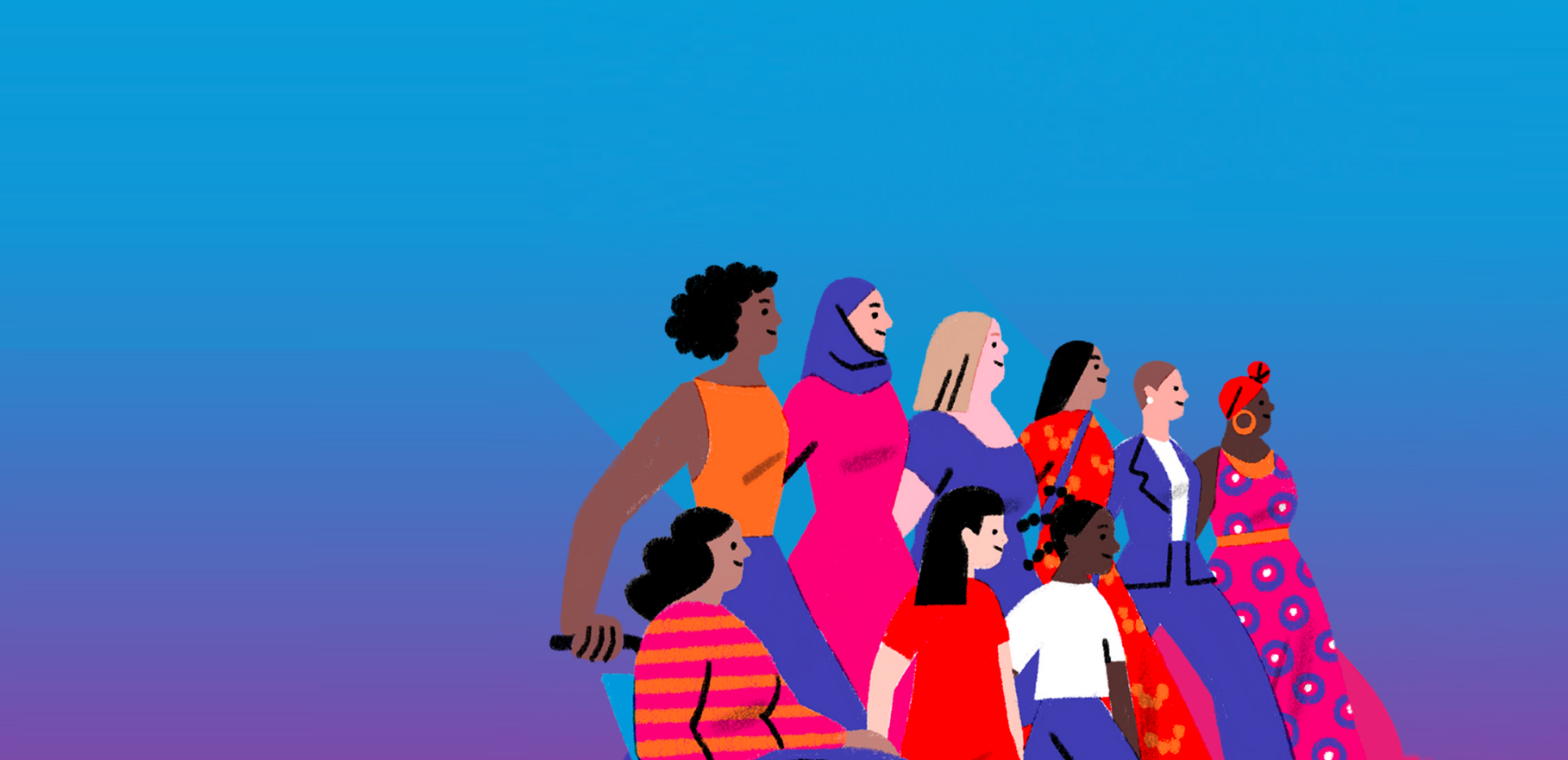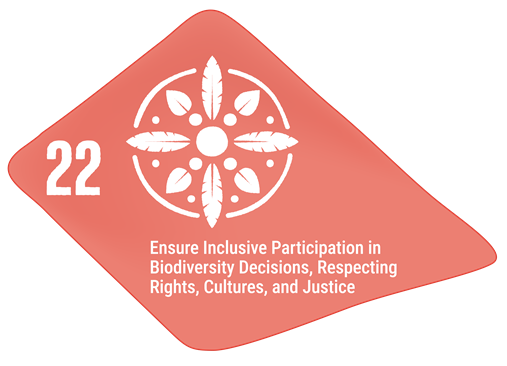
International Women’s Day-- 8 March 2025
“For all women and girls: Rights. Equality. Empowerment”
"On this International Women’s Day, we at the Secretariat of the Convention on Biological Diversity join the global call to promote equal rights, empowerment and opportunities for all women and girls.
Almost three decades ago, the world came together to develop the Beijing Declaration and Platform for Action, a visionary and widely endorsed blueprint for securing the rights of all women and girls.
The Beijing Declaration has contributed to reshaping the global agenda, but its promise remains largely unfulfilled.
Women and girls make up half of the world’s population, yet many still face gender-based discrimination, often depriving them of their rights and denying them a level playing field for access to opportunities.
This is nothing less than a moral failing. But more than that: At a time when the world is grappling with a multi-pronged environmental crisis at planetary scale, we need all to be able to contribute to their full potential. The world needs the leadership and engagement of women and girls in protecting, restoring and sustainably using biodiversity, addressing climate change and achieving sustainable development.
Indigenous women and girls bring unique knowledge and practices that are vital for biodiversity stewardship. Their empowerment is crucial for fulfilling the vision of people living in harmony with nature.
That is the vision that the world is pursuing through the Kunming-Montreal Global Biodiversity Framework—the KMGBF.
The contributions of empowered women, as part of a whole-of-society endeavour, are essential to the implementation of the KMGBF. The Gender Plan of Action, which was adopted alongside the Framework, aims to enable and foster those essential contributions.
Today and every day, let us promote the rights of women and girls and take action to empower them, for peace with nature and for our common future."
Join @cbd_wc for an exclusive interview with @SchomakerAstrid on the Gender and Biodiversity Champions Platform! Let’s unite for gender justice and biodiversity protection! 🌱
— UN Biodiversity (@UNBiodiversity) March 7, 2025
🔗 Sign up: [https://t.co/zMG9cE55gN]#InternationalWomensDay #IWD2025 pic.twitter.com/j9mqulKvq2
Watch the event!
CBD Women's Caucus Presents: Gender and Biodiversity Champions: A Call to Urgent Action for Justice!
More information
Gender Plan of Action (Decision 15/11) (2022)
Related Targets in The Kunming-Montreal Global Biodiversity Framework
Ensure the full, equitable, inclusive, effective and gender-responsive representation and participation in decision-making, and access to justice and information related to biodiversity by indigenous peoples and local communities, respecting their cultures and their rights over lands, territories, resources, and traditional knowledge, as well as by women and girls, children and youth, and persons with disabilities and ensure the full protection of environmental human rights defenders.
Why is this target important?
Indigenous peoples and local communities have a cultural and holistic understanding of nature based on their traditional knowledge, practices and innovation. This information and understanding of biodiversity in turn play a crucial role in the conservation and sustainable use of biodiversity. The insights of indigenous and local communities on local ecosystems play a fundamental role in developing conservation initiatives that integrate cultural values and traditional governance systems, including sustainable use such as resource management techniques, traditional hunting and fishing, and elective harvesting. Further, their lands encompass diverse ecosystems, ranging from forests and wetlands to mountains and coastal areas with high concentrations of biodiversity and often promote sustainable land use, including agroforestry, rotational farming and community-based conservation management systems. Involving indigenous peoples and local communities in biodiversity conservation and the recognition of their perspectives and expertise can contribute to the development of context-specific and effective conservation strategies.
The target also recognizes the importance of meaningful participation of women and girls, as well as the inclusion of children, youth and persons with disabilities, in promoting social equity and empowering these groups to actively contribute to biodiversity conservation. It also highlights the need to protect environmental human rights defenders as they are at the forefront of protecting biodiversity by monitoring and exposing environmental violations, promoting sustainable practices and advocating for a human rights-based approach to conservation efforts.
Links to other elements of the Kunming-Montreal Global Biodiversity Framework, and other frameworks and processes.
- Actions to reach Target 22 should take into account the considerations for implementation identified in section C of the Kunming-Montreal Global Biodiversity Framework.
- Progress towards Target 22 will directly support the attainment of all goals and targets. However, progress towards this target is particularly relevant for the achievement of targets 1, 3, 5, 9, 13, 21 and 23. Conversely, progress towards targets 21 and 23 will support progress towards this target.
- Target 22 addresses issues that were also addressed by Aichi Biodiversity Target 18.
- Elements of Target 22 are also addressed in the targets of the Sustainable Development Goals, including targets 1.4, 5.5, 5.a, 10.2, 10.3, 16.3, 16.7, and 16.10.

Ensure gender equality in the implementation of the framework through a gender-responsive approach where all women and girls have equal opportunity and capacity to contribute to the three objectives of the Convention, including by recognizing their equal rights and access to land and natural resources and their full, equitable, meaningful and informed participation and leadership at all levels of action, engagement, policy and decision-making related to biodiversity.
Why is this target important?
Gender roles in many countries influence the conservation and sustainable use of biodiversity by impacting the ability of women to participate in decision-making and by affecting their access to and control of land, biological resources and other productive assets. Considering gender dimensions in biodiversity-related decision-making can lead to positive outcomes for biodiversity and gender equality. Women often play a vital role in managing natural resources and promoting sustainable agriculture, forestry and fisheries. When women have access to resources, land, education, healthcare and economic opportunities on par with men, they are better able to participate in decision-making processes and advocate for environmental protection.
Links to other elements of the Kunming-Montreal Global Biodiversity Framework, and other frameworks and processes.
- Actions to reach Target 23 should take into account all of the considerations for implementation identified in section C of the Kunming-Montreal Global Biodiversity Framework.
- Progress towards this target will contribute to the attainment of goals A and B of the Kunming-Montreal Global Biodiversity Framework. Progress towards this target would also contribute to the attainment of all targets and in particular targets 9, 10 and 11.
- Elements of this target were previously addressed in Aichi Biodiversity Target 14.
- Elements of Target 8 are also addressed in the targets of the Sustainable Development Goals, including targets 5.1, 5.5 and 5.c

Click here for more information about Target 23